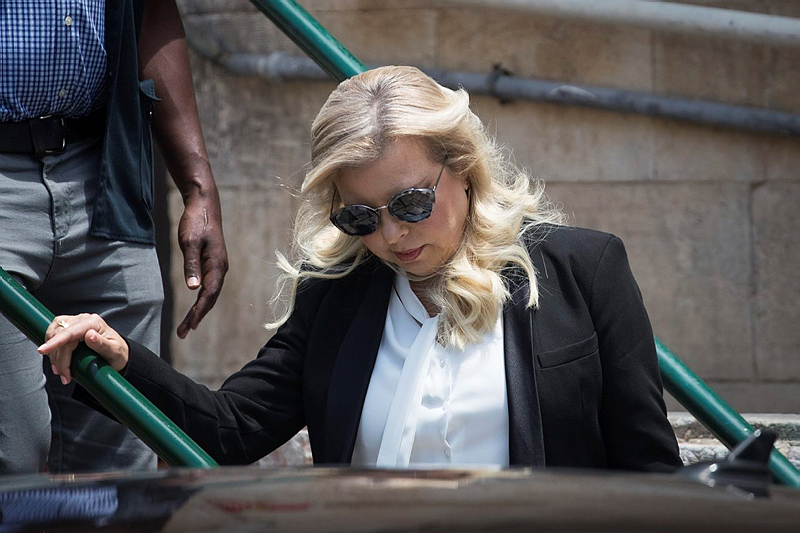The prime minister’s wife was released after an overnight stay Thursday and treatment with fluids.
By Batya Jerenberg, World Israel News
Sara Netanyahu, the wife of Israeli Prime Minister Benjamin Netanyahu, was hospitalized overnight Thursday in a precautionary measure after she felt unwell for several days, and was released Friday afternoon.
She had started feeling poorly in Cyprus on Monday, the second and last day of her husband’s state trip to the country, said a statement released by the prime minister’s office. When her state did not improve by Thursday, she went to see Prof. Alon Pikarsky, head of the surgical department at the Hadassah Ein Kerem Hospital in Jerusalem.
“She stayed overnight in the surgical department for observation and treatment with fluids,” the Friday statement said. “Today…after everything was found to be normal, she was released to her home.”
Sara Netanyahu often accompanies her husband on his state visits.
The statement comes less than two months after July episode with her husband, when Netanyahu was brought to the emergency room at the Sheba Medical Center after what his office described as a bout of dehydration.
The initial hospital statement said that an overnight round of tests had concluded that “his heart is completely normal,” but he was fitted with a Holter monitor, a device that detects cardiac issues, as a precaution. One week later, the 72-year-old prime minister was in surgery to have a pacemaker inserted in his heart.
The operation delayed Netanyahu’s trip to Cyprus, which was rescheduled for last week.
The visit’s focus was a three-way meeting with his Cypriot and Greek counterparts, in which they discussed upcoming major joint infrastructure projects. This includes an ambitious plan connecting the electric grids of the three countries via an undersea cable, called the EuroAsia Interconnector power line. This would “allow a more optimal use of power or give you power when there is a failure in your own country,” as the prime minister explained.
Other topics on the table included joint development of AI-based solutions for early detection of wildfires, which have plagued Greece especially in recent months, and opening Israel’s dairy market to Cypriot and Greek products to encourage competition and lower prices, which would give some relief to Israelis, who pay way more than Europeans do for dairy items.
Talks also inched forward on a way to bring Europe natural gas from Israel that would lessen the continent’s dependence on Russia for the crucial energy product, which has been discussed for years, well before Russia invaded Ukraine and cut its supply to Europe.
A pipeline could run from Israel to Cyprus to Greece in order to enter the continent, which would make it the longest gas pipeline in the world. The alternative, favored by Nicosia, would be to pump gas from Israel just to the island country, where it would be liquified and put on ships to Europe.


